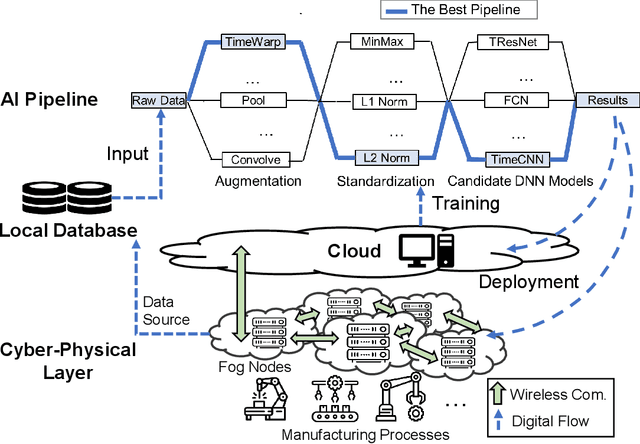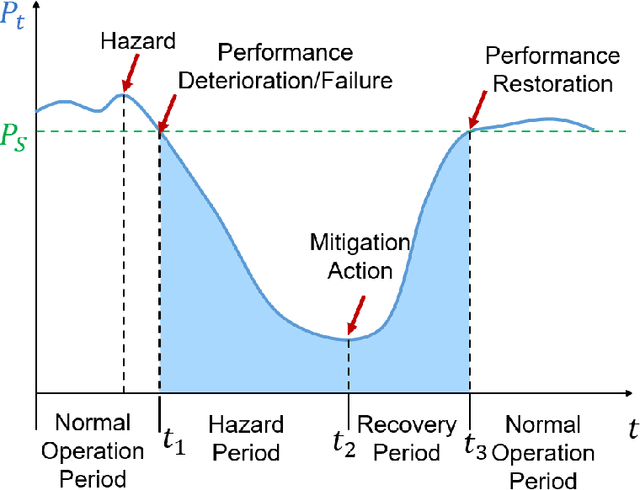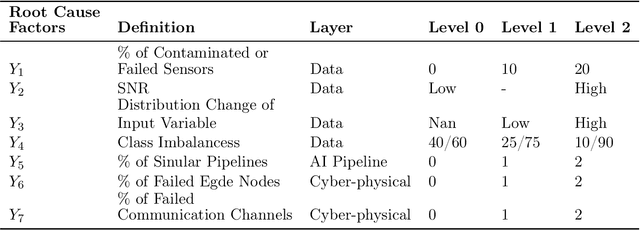Yingyan Zeng
Hierarchical Dataset Selection for High-Quality Data Sharing
Dec 24, 2025



Abstract:The success of modern machine learning hinges on access to high-quality training data. In many real-world scenarios, such as acquiring data from public repositories or sharing across institutions, data is naturally organized into discrete datasets that vary in relevance, quality, and utility. Selecting which repositories or institutions to search for useful datasets, and which datasets to incorporate into model training are therefore critical decisions, yet most existing methods select individual samples and treat all data as equally relevant, ignoring differences between datasets and their sources. In this work, we formalize the task of dataset selection: selecting entire datasets from a large, heterogeneous pool to improve downstream performance under resource constraints. We propose Dataset Selection via Hierarchies (DaSH), a dataset selection method that models utility at both dataset and group (e.g., collections, institutions) levels, enabling efficient generalization from limited observations. Across two public benchmarks (Digit-Five and DomainNet), DaSH outperforms state-of-the-art data selection baselines by up to 26.2% in accuracy, while requiring significantly fewer exploration steps. Ablations show DaSH is robust to low-resource settings and lack of relevant datasets, making it suitable for scalable and adaptive dataset selection in practical multi-source learning workflows.
FAIR: Facilitating Artificial Intelligence Resilience in Manufacturing Industrial Internet
Mar 03, 2025



Abstract:Artificial intelligence (AI) systems have been increasingly adopted in the Manufacturing Industrial Internet (MII). Investigating and enabling the AI resilience is very important to alleviate profound impact of AI system failures in manufacturing and Industrial Internet of Things (IIoT) operations, leading to critical decision making. However, there is a wide knowledge gap in defining the resilience of AI systems and analyzing potential root causes and corresponding mitigation strategies. In this work, we propose a novel framework for investigating the resilience of AI performance over time under hazard factors in data quality, AI pipelines, and the cyber-physical layer. The proposed method can facilitate effective diagnosis and mitigation strategies to recover AI performance based on a multimodal multi-head self latent attention model. The merits of the proposed method are elaborated using an MII testbed of connected Aerosol Jet Printing (AJP) machines, fog nodes, and Cloud with inference tasks via AI pipelines.
Ensemble Active Learning by Contextual Bandits for AI Incubation in Manufacturing
Oct 11, 2023



Abstract:It is challenging but important to save annotation efforts in streaming data acquisition to maintain data quality for supervised learning base learners. We propose an ensemble active learning method to actively acquire samples for annotation by contextual bandits, which is will enforce the exploration-exploitation balance and leading to improved AI modeling performance.
Learning to Refit for Convex Learning Problems
Nov 24, 2021



Abstract:Machine learning (ML) models need to be frequently retrained on changing datasets in a wide variety of application scenarios, including data valuation and uncertainty quantification. To efficiently retrain the model, linear approximation methods such as influence function have been proposed to estimate the impact of data changes on model parameters. However, these methods become inaccurate for large dataset changes. In this work, we focus on convex learning problems and propose a general framework to learn to estimate optimized model parameters for different training sets using neural networks. We propose to enforce the predicted model parameters to obey optimality conditions and maintain utility through regularization techniques, which significantly improve generalization. Moreover, we rigorously characterize the expressive power of neural networks to approximate the optimizer of convex problems. Empirical results demonstrate the advantage of the proposed method in accurate and efficient model parameter estimation compared to the state-of-the-art.
 Add to Chrome
Add to Chrome Add to Firefox
Add to Firefox Add to Edge
Add to Edge